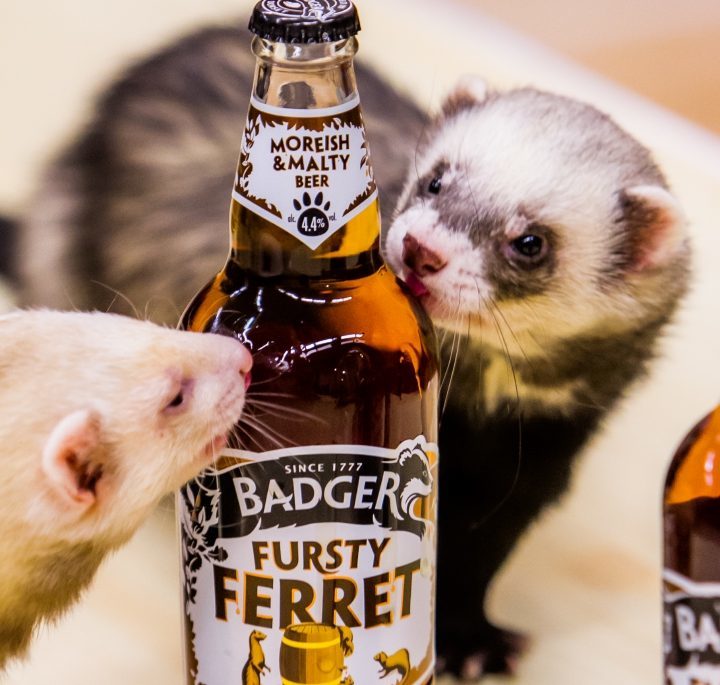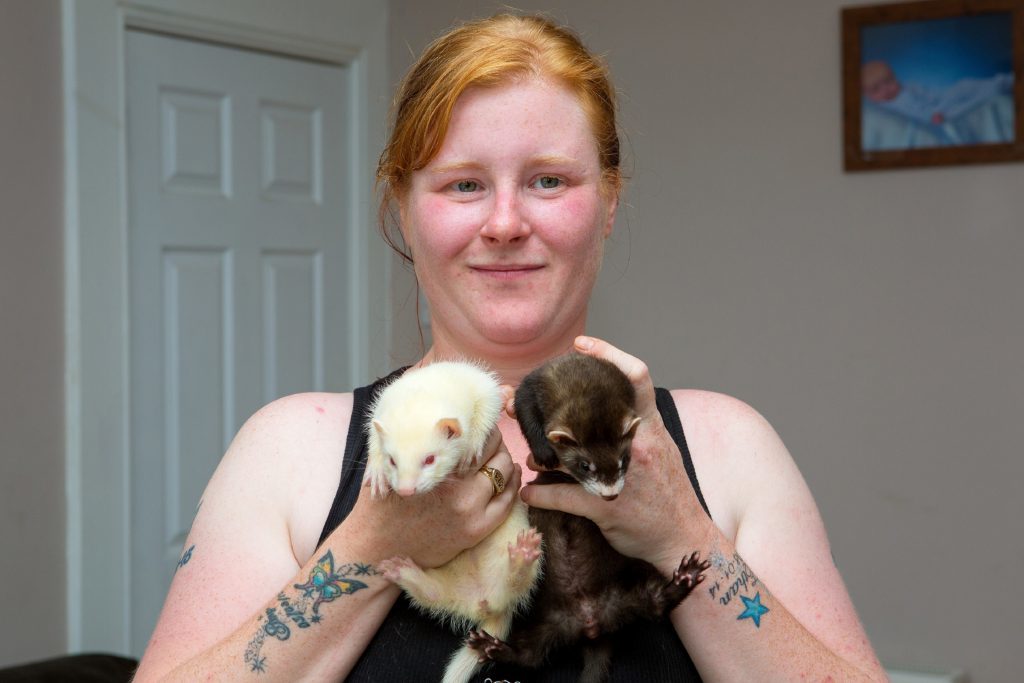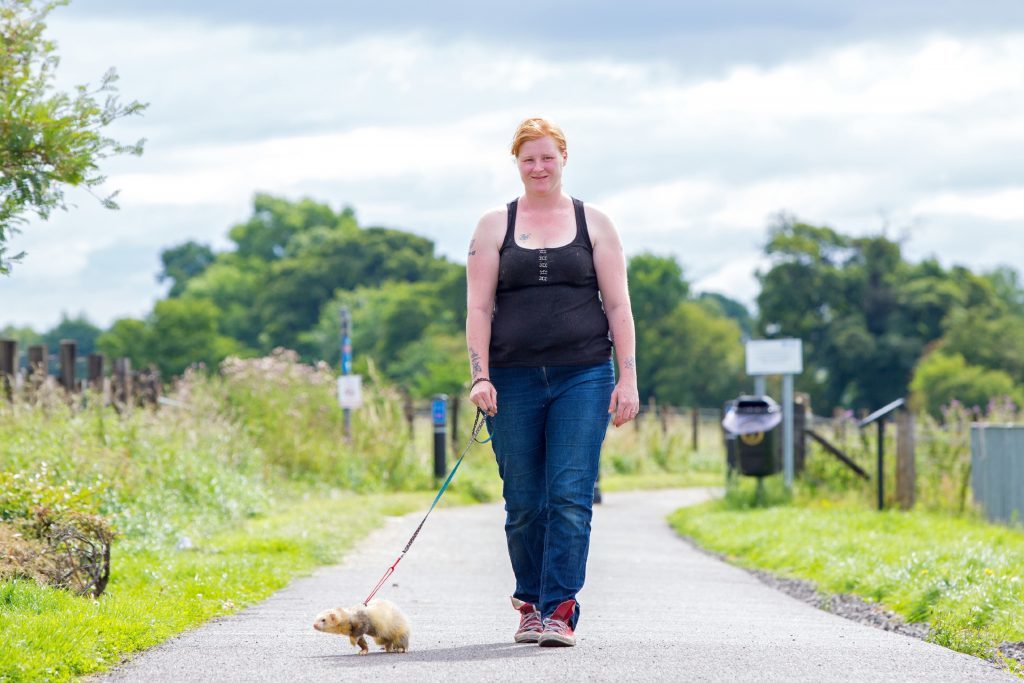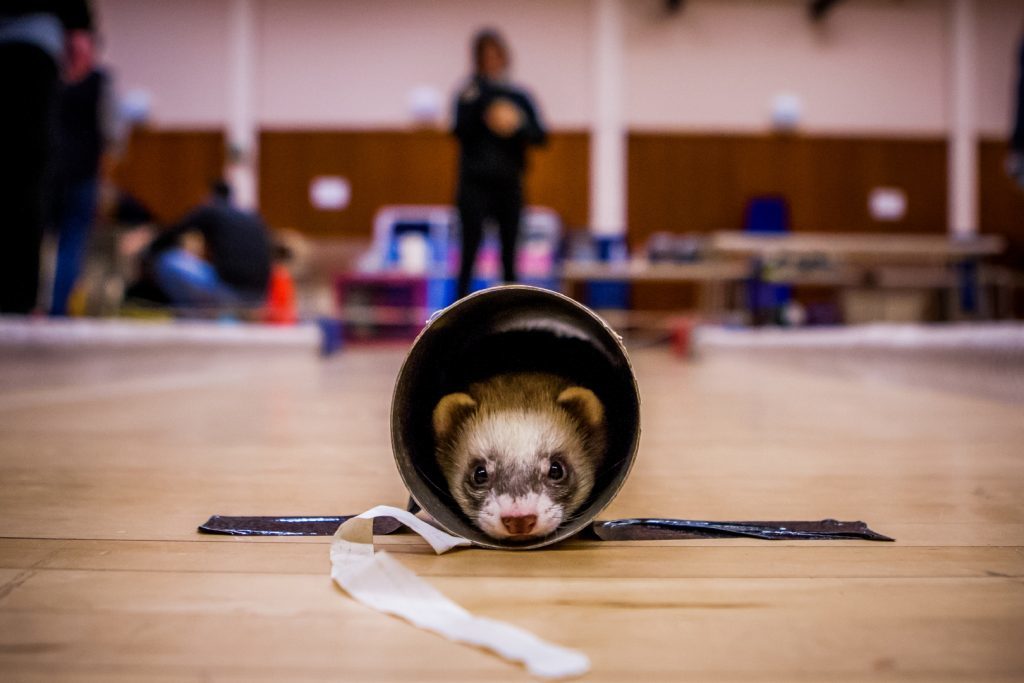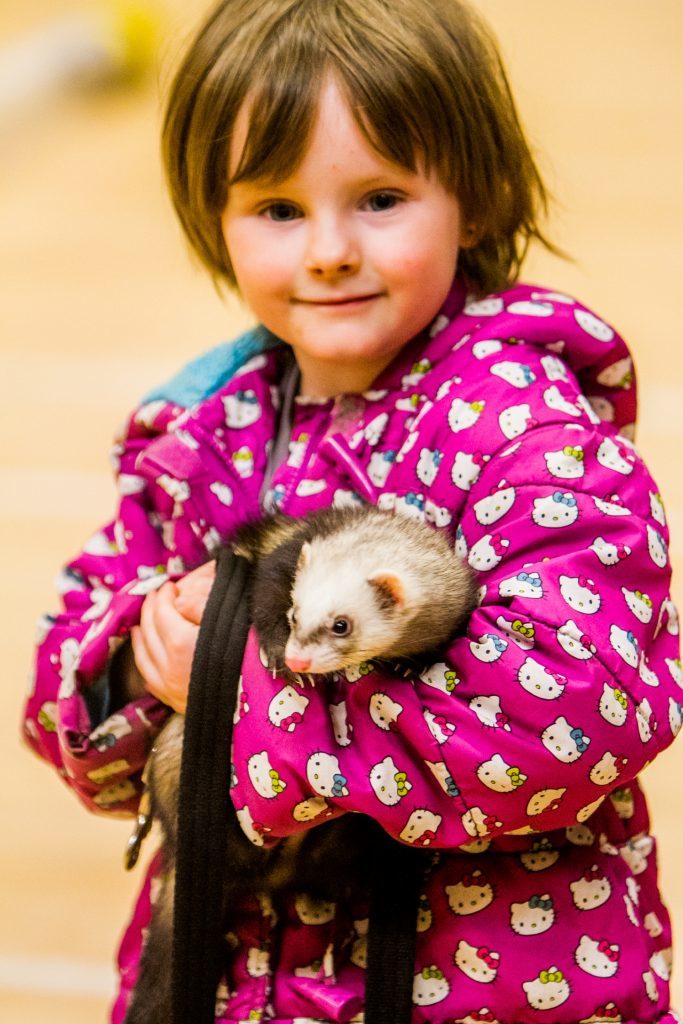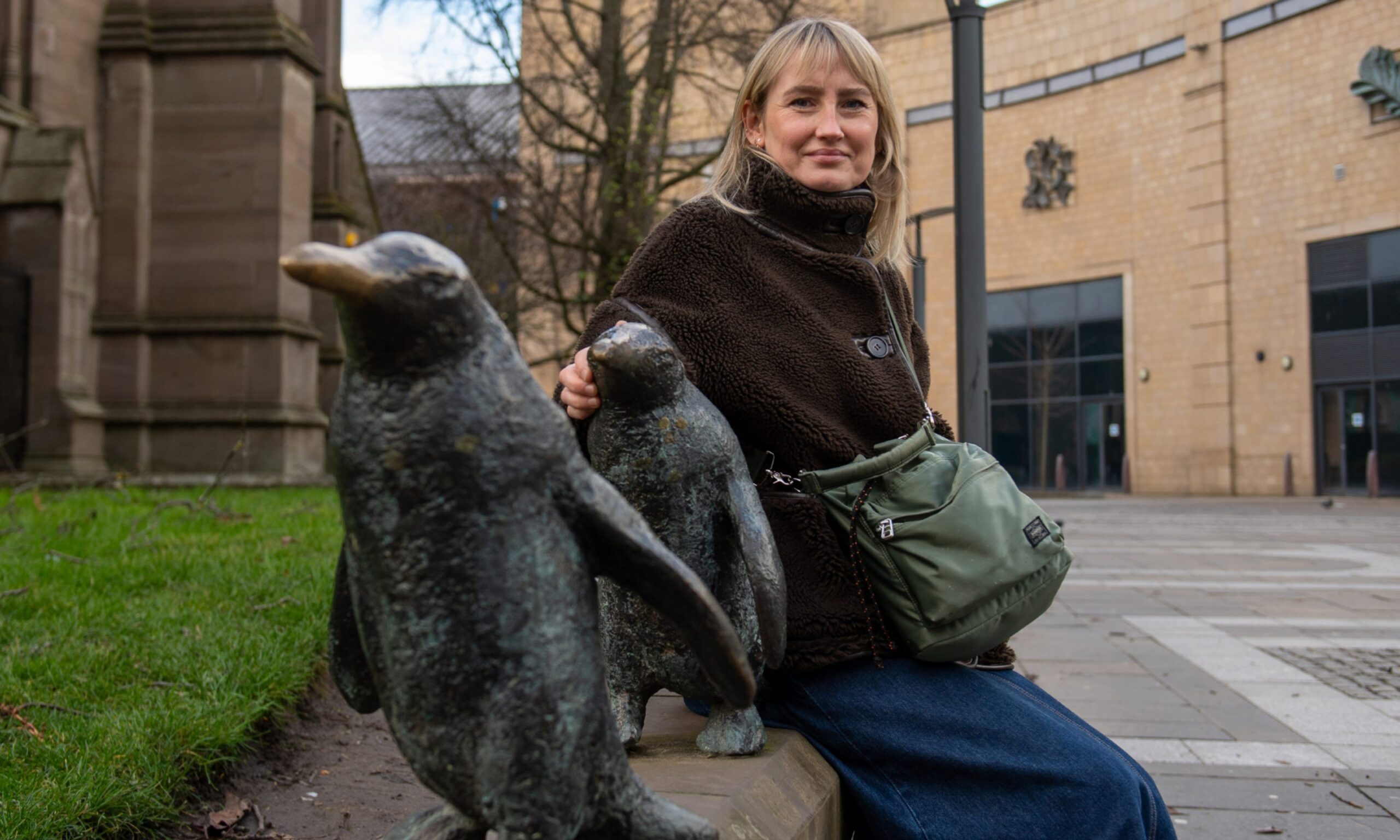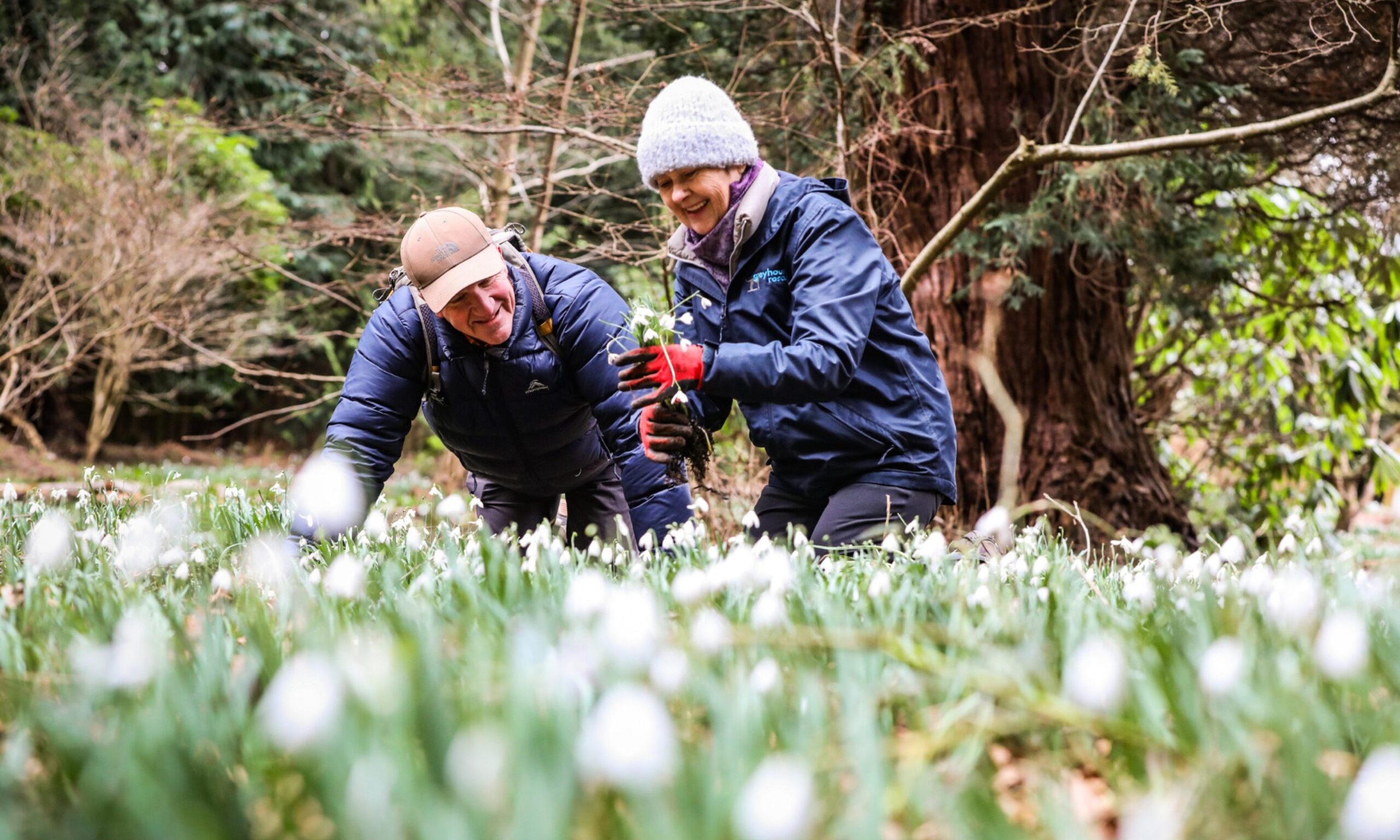They might have gained a bad reputation for nipping, biting and being a bit stinky but Gayle Ritchie meets a ferret fanatic and discovers the creatures can make fantastic pets
Marie Cunningham is taking her ferret Hellboy for a walk in the park.
He trots along quite happily, stopping briefly to sniff a particularly smelly patch of grass.
“Do you fancy stroking him?” Marie asks, and I have to admit, I’m a wee bit reluctant.
“He won’t nip – I promise,” she laughs, lifting him up and placing him in my arms, instructing me to hold him like a baby.
Hellboy is actually really cute, and I can see what’s coming – Marie is hoping I’ll offer a home to one of her adorable six-week-old kits.
Marie, 29, is a full-time mum-of-three from Dundee who devotes all her spare time to the frisky fuzzies.
As membership coordinator of the Scottish Ferret Club, it’s her role to promote ferrets as both pets and working animals, and to encourage responsible breeding, rescue and re-homing.
The club hosts regular fun days and galas across Scotland, with ferret handling sessions, competitions, and the animals’ favourite thing – racing.
“They absolutely love it,” says Marie, who started hoarding ferrets when she moved into a bigger house a year ago.
“The race down plastic tubes and people put bets on which ferret will win, with money going to charity.”
When I visit, eight are whizzing round her lounge and another 15, including six kits, are in cages in her garden. Isn’t 24 ferrets rather a lot?
“That’s about average – I know one member who has 36,” says Marie. “When you travel round with them, taking them to shows, it’s good to give some a break.”
She bought her first ferrets via Gumtree and accumulated the rest from friends. Some of their names are fabulous: Casper, Speckles, Snitch, Lightening, Coco and Sandy are just a few.
So what is it that Marie adores about ferrets? “They’re the ultimate pet. They’re so easy to care for and have great personalities. They’re cheeky, loving and playful, they sleep for 16 to 18 hours a day and fit into your routine. They’re amazing with my three kids, Amy, Ethan and Christopher.”
When it comes to feeding, Marie mixes up a feast of raw meat with special ferret kibble, and occasionally, raw eggs and whole chickens – claws, feathers, bones and all.
She’s well aware that ferrets have got a bad reputation in some people’s eyes, but feels this is unfair.
“Some folk think they bite, but that isn’t the case,” she says. “You can nip-train them from a young age and that puts a stop to it. At shows, kids come running over begging to stroke them and it’s the parents who say ‘don’t touch that, it’ll bite’, but of course, they never do.”
Nip-trained or not, there’s no escaping the fact that ferrets exude a distinctive smell, as a result of their well-developed musk glands, especially pungent in unneutred males like Hellboy.
You either love it or hate it and, well, Marie seems to love it.
Not all ferrets are pets; many are used for hunting rabbits, although Marie’s not prepared to take the risk that they might dive down a hole and never come back!
As I prepare to leave, she asks if I’m keen to take one of the babies home. Alas, I have to say no because my dog seems a bit intimidated by the critters (and that’s not a lie).
“In the right home, with the right people, ferrets make fantastic pets,” says Marie. “A lot of people buy them and get bored, and they end up being rescued. We want to ensure they have loving, forever homes – they’re brilliant animals and they deserve it.”
